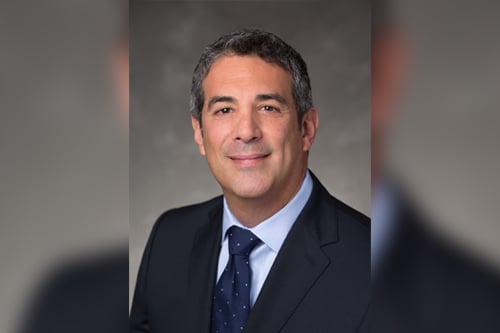

From the Thanksgiving winter storm in the Northeast US and mega-typhoon Hagibis in Japan that surprised travellers in October, to other disruptions that complicated many people’s travel plans, such as the grounding of Boeing 737 Max jets, 2019 has served to underscore the necessity of one insurance product.
In fact, a major takeaway from this year of natural catastrophe events as well as other disruptors is for agents and brokers to get their clients onboard with travel insurance.
“Anytime a traveller is preparing to leave their home base, we believe that insuring your trip and your investment in your vacation and holiday, especially if travelling with multiple members of your family and friends, is always advisable,” said James Sion (pictured), Generali Global Assistance’s COO. “There’s a multitude of products out in the marketplace that travellers can purchase to protect whether it be their flight, cruise, or overall holiday, and ensure that they have proper coverage for anything that might go wrong with respect to health and disruption.”
That leads to the most important thing about travel insurance, which is that people should always know what they’re purchasing. This is where insurance professionals come in particularly handy.
“Because of the different products and because of the various things that are covered, we want all of our insureds to be knowledgeable and well-educated as to what they’re purchasing and what would be covered in the event of a disruption to their travel plans,” said Sion. “The key for us at Generali Global Assistance is transparency. We want to ensure that everyone knows what they’re purchasing and the value of what they’re purchasing. The bottom line is – I know at Generali as well as all the other companies that sell travel products – we want to help. We want to be there for people, we want to be able to support them, and we want to make sure that their experience is as they anticipated it to be when dealing with us.”
Besides purchasing travel insurance, the savvy traveller can employ a few risk mitigation techniques to ensure that their trip stays on course. This includes minimising the potential for an inconvenience like lost or misplaced luggage during hurricanes and other disruptions by packing necessities in carry-on bags, and travelling with a hard copy of the Description of Coverage/Policy so they can contact the insurer, even if they don’t have internet access.
“For anyone leaving home, whether it’s a domestic trip or international trip, having proper documentation with you is always important, [as is] ensuring that all the family members or friends know where you’re travelling to in the event that there is disruption,” advised Sion. “Everyone takes for granted that they’ll be able to use their cell phone or communicate with other people if they are caught in some sort of bad weather situation or condition so it’s important to have copies of driver’s licenses, passports, and travel documents. It’s also very important to have a copy of your insurance policy with you because that insurance policy will not only provide you with information on who to contact and the appropriate telephone numbers, but it will also help the insureds know exactly what’s covered at the time the loss potentially would occur.”
Whether they’re travelling during hurricane or monsoon season, or have seen potential disruptions like air-related strikes or groundings on the news, it is important that insureds know to educate themselves on the season during which they’re travelling, the destination they’re choosing, and what exposures that potentially could bring.
Let’s say, for instance, someone planned to go to the Keys in Florida, and a hurricane warning before the trip was dire, though in the end there ended up being little disruption to and from the destination. This is why it’s important that travellers keep apprised of where they’re going to and what the conditions are, says Sion.
“There are tons of tools out there that you can download to your mobile devices, whether it be phone or tablet, and those usually give you real-time information and you can actually watch the storms as they progress. Even just basic stuff for rain, temperatures, pollution indexes – all of this is I think key to when you’re travelling,” he continued. “A well-seasoned traveller has a couple of good tools at their disposal, which can really help them plan and be prepared.”
Brokers and agents calls also let their insureds know that they can always reach out to a provider’s helpline during a time of crisis.
“We all have call centres, we all provide information when we know that there’s a storm developing. That would be another way of mitigating risk, is to make a call to their carrier to find out if there’s any additional precautions that they should be taking and what else they should be prepared with,” said Sion. “But I think if anyone travels, as long as they stay informed, as long as they watch local news and weather and keep updated via their own personal devices, as long as they’re prepared with the documentation, medications, and anything that they would need to be [safe] in some sort of disruption, that always goes a long way, even when weather is perfect.”
